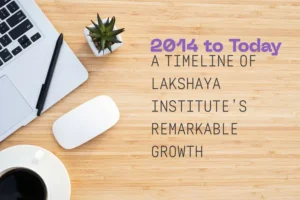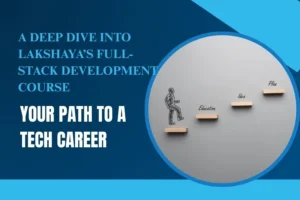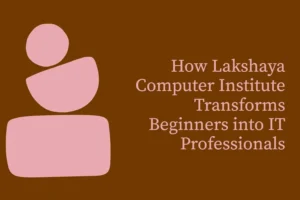TL;DR: Choosing between short-term and long-term courses depends on your goals, time, and budget. This guide on Short-Term vs Long-Term Courses: Which is Right for You? explores key differences to help you decide.
Introduction: Your Path to Learning Starts Here
Have you ever felt stuck deciding whether to take a quick course to boost your skills or commit to a longer program for deeper expertise? The choice between short-term vs long-term courses can shape your career and personal growth. With so many options—online bootcamps, certifications, or multi-year degrees—it’s easy to feel overwhelmed. This article breaks down Short-Term vs Long-Term Courses: Which is Right for You? to help you make an informed decision that aligns with your goals.
Learning is a journey, and the path you choose depends on where you want to go. Short-term courses offer quick, focused skills, while long-term courses provide comprehensive knowledge. Let’s dive into the differences, benefits, and drawbacks to find the best fit for you.
What Are Short-Term Courses?
Short-term courses typically last a few weeks to six months. They focus on specific skills, like coding, digital marketing, or graphic design, and are often delivered online or through intensive bootcamps.
- Fast Results: Learn practical skills in weeks, not years.
- Affordable: Lower costs compared to degree programs.
- Flexible: Many are self-paced or part-time, ideal for busy schedules.
For example, a 12-week coding bootcamp can teach you Python, while a six-month digital marketing course might cover SEO and social media strategies. According to a 2023 study by Course Report, 79% of bootcamp graduates found jobs within six months, showing the power of short-term learning.
What Are Long-Term Courses?
Long-term courses, like associate or bachelor’s degrees, span one to four years. They provide in-depth knowledge and are often required for fields like engineering, medicine, or law.
- Comprehensive Learning: Cover broad topics and foundational skills.
- Career Credibility: Degrees are widely recognized by employers.
- Networking: Build connections through longer programs.
For instance, a four-year computer science degree includes algorithms, databases, and software engineering, preparing you for diverse tech roles. Data from the U.S. Bureau of Labor Statistics shows that degree holders earn 25% more on average than non-degree holders.
How Do Short-Term Courses Fit into Your Life?
Short-term courses are perfect if you’re juggling work, family, or other responsibilities. They’re designed for quick upskilling, making them ideal for career changers or those seeking promotions.
- Time Commitment: Often 10–20 hours per week.
- Cost-Effective: Prices range from $500 to $15,000, compared to $40,000+ for degrees.
- Examples: Think Udemy’s data analytics course or Coursera’s UX design certificate.
Short-Term vs Long-Term Courses: Which is Right for You? If you need skills fast, short-term courses deliver.
Are Long-Term Courses Worth the Time?
Long-term courses require significant time and financial investment but offer deeper expertise. They’re ideal for careers requiring formal credentials or extensive knowledge.
- Time Commitment: 15–30 hours per week over years.
- Cost: Tuition can exceed $100,000 for top programs.
- Examples: A nursing degree or an MBA program.
If your goal is a specialized career, long-term courses provide the foundation you need. Short-Term vs Long-Term Courses: Which is Right for You? Consider long-term if you’re aiming for roles with strict educational requirements.
Which Course Type Suits Your Career Goals?
Your career goals should guide your choice. Short-term courses work for immediate needs, like landing a freelance gig. Long-term courses are better for roles requiring deep expertise.
- Short-Term: Great for tech, creative, or trade skills (e.g., web development, carpentry).
- Long-Term: Essential for regulated fields (e.g., law, medicine).
A 2024 LinkedIn report found that 60% of hiring managers value skills-based certifications, but 80% of senior roles still require degrees.
How Much Time Can You Commit?
Time is a key factor. Short-term courses fit busy schedules, while long-term courses demand consistent effort over years.
- Short-Term: Ideal for working professionals or parents.
- Long-Term: Suits recent high school graduates or those with fewer commitments.
Ask yourself: Can you study full-time, or do you need flexibility? Short-Term vs Long-Term Courses: Which is Right for You? Time availability is a dealbreaker.
What’s Your Budget for Learning?
Cost is a major consideration. Short-term courses are generally cheaper, while long-term courses can lead to student debt.
- Short-Term: Often under $10,000, with many online options under $1,000.
- Long-Term: Tuition, books, and fees can add up to six figures.
Weigh the return on investment. A short-term course might land you a $60,000 job quickly, while a degree could lead to a $100,000+ salary long-term.
Can You Combine Short-Term and Long-Term Learning?
You don’t always have to choose. Many professionals combine both:
- Start with a short-term course to gain skills and enter a field.
- Pursue a long-term course later for career advancement.
For example, take a six-week data analysis course to land an entry-level job, then enroll in a part-time master’s degree to climb the corporate ladder.
What Are the Risks of Choosing the Wrong Course?
Choosing poorly can waste time and money. Short-term courses might lack depth, while long-term courses can feel overwhelming.
- Short-Term Risks: Limited recognition in some industries.
- Long-Term Risks: High costs and potential burnout.
Research course outcomes and read reviews on platforms like Course Report or SwitchUp before deciding.
Short-Term vs Long-Term Courses – Frequently Asked Questions
What’s the main difference between short-term and long-term courses?
Short-term courses focus on specific skills and take weeks to months, while long-term courses offer in-depth education over years. Short-Term vs Long-Term Courses: Which is Right for You? See “What Are Short-Term Courses?”
Are short-term courses recognized by employers?
Yes, especially in tech and creative fields. Certifications from platforms like Coursera or edX are valued for practical skills.
Can I get a job with a short-term course?
Absolutely. Many bootcamp graduates land jobs in tech, marketing, or design within months. See “How Do Short-Term Courses Fit into Your Life?”
Are long-term courses better for career growth?
Long-term courses are ideal for regulated or specialized fields, offering credibility and deeper knowledge. See “Are Long-Term Courses Worth the Time?”
How do I choose between short-term and long-term courses?
Consider your goals, budget, and time. Short-term suits quick upskilling; long-term is for comprehensive learning. Short-Term vs Long-Term Courses: Which is Right for You?
Can I switch from a short-term to a long-term course?
Yes, many start with short-term courses to test a field, then pursue long-term education for advancement. See “Can You Combine Short-Term and Long-Term Learning?”
Conclusion: Make the Right Choice for You
Deciding between short-term vs long-term courses depends on your goals, time, and budget. Short-term courses offer quick, affordable skills, while long-term courses provide deep expertise and credibility. Short-Term vs Long-Term Courses: Which is Right for You? Reflect on your priorities, research thoroughly, and choose the path that aligns with your future. Share your thoughts in the comments or explore our guides on online learning tips or career planning strategies.
- Lakshaya Institute’s Journey: From One Center to Three Leading Branches in Delhi NCR
- 2014 to Today: A Timeline of Lakshaya Institute’s Remarkable Growth
- Building Futures: How Lakshaya Institute’s Alumni Are Making Their Mark Globally
- Recognition and Excellence: Why Lakshaya Institute Stands Out Among Delhi NCR’s Computer Institutes
- Industry Partnerships That Power Lakshaya Institute’s Practical Learning Approach
- The Vision of Neeraj Aggarwal: Building a Tech-Driven Future with Lakshaya Computer Institute
- Neeraj Aggarwal’s Guide to Staying Ahead in the Ever-Evolving Tech Industry
- Empowering Women in Tech: Lakshaya Computer Institute’s Commitment to Diversity
- From Classroom to Career: How Lakshaya Computer Institute Bridges the Gap
- A Deep Dive into Lakshaya’s Full-Stack Development Course: Your Path to a Tech Career
- How Lakshaya Computer Institute Transforms Beginners into IT Professionals
- Top 5 In-Demand Tech Skills to Learn in 2025 at Lakshaya Computer Institute













